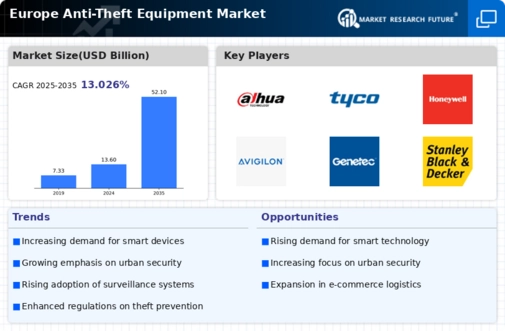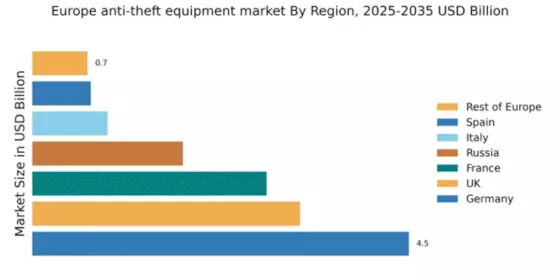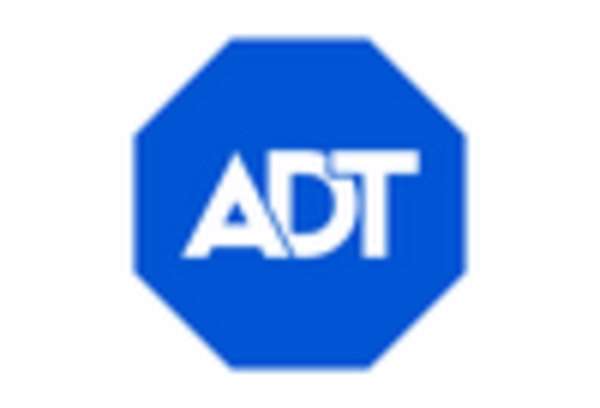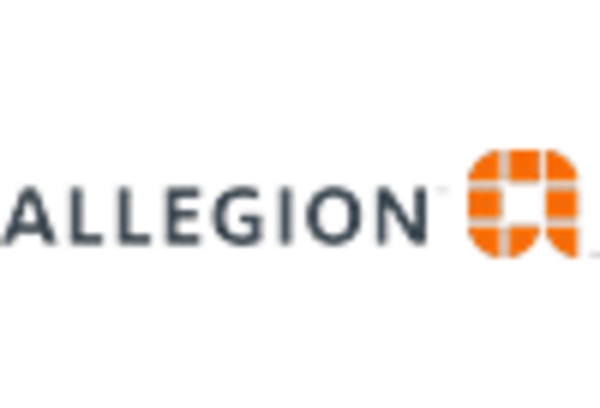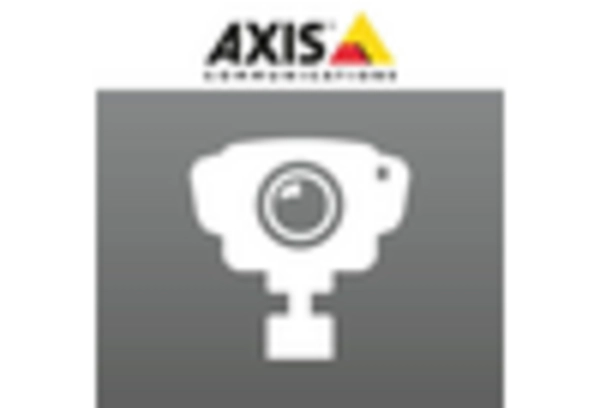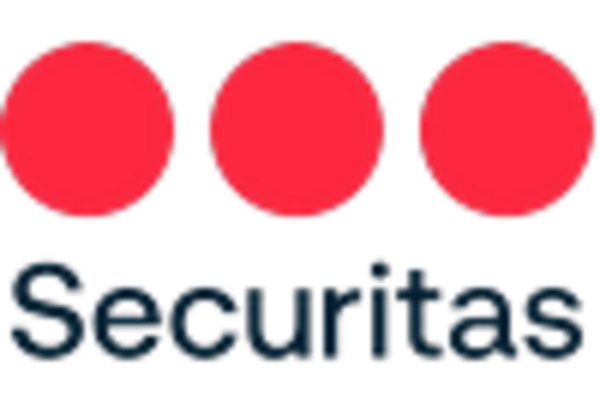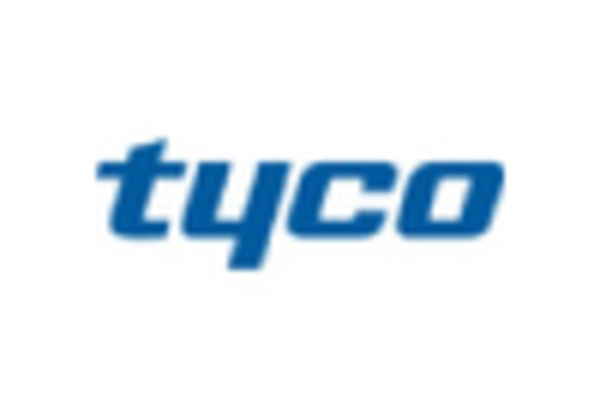Germany : Strong Demand and Innovation Drive Growth
Germany holds a commanding 4.5% market share in the European anti-theft equipment sector, valued at approximately €1.5 billion. Key growth drivers include increasing urbanization, rising crime rates, and a strong emphasis on security technology. Government initiatives promoting smart city projects and stringent regulatory policies further enhance demand. The robust industrial infrastructure supports the development and deployment of advanced security solutions.
UK : Evolving Security Landscape in the UK
The UK accounts for a 3.2% share of the European market, translating to around €1.1 billion. Growth is driven by increasing concerns over property crime and the adoption of smart home technologies. Regulatory frameworks, such as the Data Protection Act, influence market dynamics, while government initiatives support the integration of security systems in residential and commercial sectors. The demand for integrated solutions is on the rise, reflecting changing consumer preferences.
France : France's Commitment to Safety Innovations
France captures a 2.8% market share, valued at approximately €950 million. The growth is fueled by heightened security concerns and government initiatives aimed at enhancing public safety. Regulatory policies, including the implementation of stricter building codes, promote the installation of anti-theft systems. The market is characterized by a shift towards smart technologies, with increasing consumer awareness driving demand for advanced security solutions.
Russia : Russia's Growing Security Demand
Russia holds a 1.8% share of the European anti-theft equipment market, valued at around €600 million. Key growth drivers include rising urban crime rates and increased investment in public safety. Government initiatives aimed at modernizing security infrastructure are pivotal. The market is evolving, with a growing preference for integrated security systems, reflecting a shift in consumer behavior towards comprehensive solutions.
Italy : Italy's Diverse Security Needs
Italy represents a 0.9% market share, valued at approximately €300 million. The market is driven by regional disparities in crime rates and a growing demand for customized security solutions. Regulatory policies encourage the adoption of advanced technologies, while government initiatives support local manufacturing. The competitive landscape features both local and international players, with a focus on tailored solutions for various sectors.
Spain : Spain's Evolving Market Dynamics
Spain accounts for a 0.7% share of the European market, valued at around €240 million. The growth is driven by increasing awareness of security needs among consumers and businesses. Government initiatives promoting public safety and regulatory frameworks support the adoption of anti-theft technologies. The market is characterized by a mix of local and international players, with a focus on innovative solutions tailored to specific industries.
Rest of Europe : Diverse Needs Across Europe
The Rest of Europe holds a 0.66% market share, valued at approximately €230 million. This sub-region features a fragmented market with varying demand across countries. Growth drivers include increasing crime rates and government initiatives aimed at enhancing public safety. Regulatory policies differ significantly, impacting market dynamics. The competitive landscape includes both established players and emerging local companies, catering to diverse security needs.


